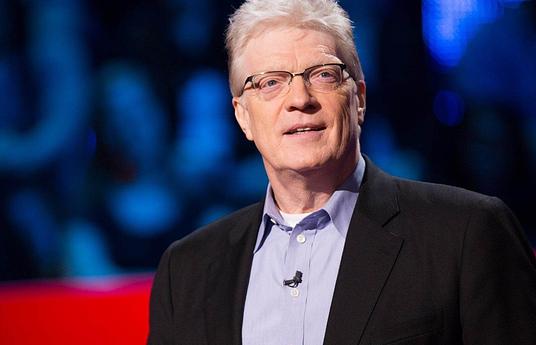‘It’s hard to overstate the importance of leadership’, says Sir Ken Robinson. School leaders and education ministers have a massive impact on the culture of a school, for better or worse, influencing almost every aspect through their individual outlook, personality and ability to connect with people.
Everyone has different ideas about the role leadership should play in education, but most can agree that the idea of top down control, with leaders and followers, is somewhat outdated. Just as teachers are becoming facilitators, co-learners and guides, will we see the roles of school leadership and government changing with the times? Considering how important leadership is, it’s vital we get it right.
For Robinson, great leadership is where each part of the leadership chain enables the end goal to be achieved, as he explains, ‘The role of a leader in education is to understand the conditions in which people flourish, just like a great teacher understands the conditions under which children learn best...The role of a head teacher is to create the conditions in the school where teachers can do that. The role of a district is to create conditions where schools in the district can do that through collaborating. The role of the government is to create conditions where districts can do that.’
In many democratic systems around the world, teachers find that they are at the whim of whichever newly elected party is trying to make their stamp on education. Constant flux and change is not exactly in support of a coherent and strong education system. Laura Kirsop, former teacher and now Product Manager at FutureLearn, explains how constant change affects UK teachers.
It would be fantastic if teachers and schools were able to professionalize on their own terms...to create a more sustainable way of doing things that is less subject to government whims.
"
‘The role of the government in education is something that’s traditionally a cause of great conflict in the UK. You’ll have a Conservative government who prefer this style of teaching and this way of doing things, so they’ll introduce some measures, and then the Labour government will get in and take them away and introduce other things. As a result teachers feel quite disempowered.’
So what’s the answer? Kirsop argues that educational professionals should be allowed more agency, ‘It would be fantastic if teachers and schools were able to professionalize on their own terms...to create a more sustainable way of doing things that is less subject to government whims.’
Does this mean government doesn’t have a part to play in schools? Not at all. Mark Londesborough, Associate Director of Creative Learning and Development at the RSA, argues, ‘I think government’s role in education should be to make sure that it is an innovative and entrepreneurial system, a platform for growth and development, and for empowering school leaders and educators to make decisions about what works, based on knowledge about what works.’ Similarly to Robinson’s argument, Londesborough explains that government’s job is to foster a culture where schools can flourish.
But any decisions on curriculums should always be kept flexible and open to change, as Londesborough explains, ‘There’s a fine line between doing that and getting too involved in what the actual knowledge base should be. We don’t want these kind of totalitarian states that assert what we should teach and what we should not.’
Ultimately, teachers and education professionals see the daily reality of what’s happening in schools and have a good idea of what works and what doesn’t. 21st century school leadership is one that creates an atmosphere where educators can flourish and governments can play a vital role in providing the infrastructure and support to help innovative teachers and leaders to succeed.


